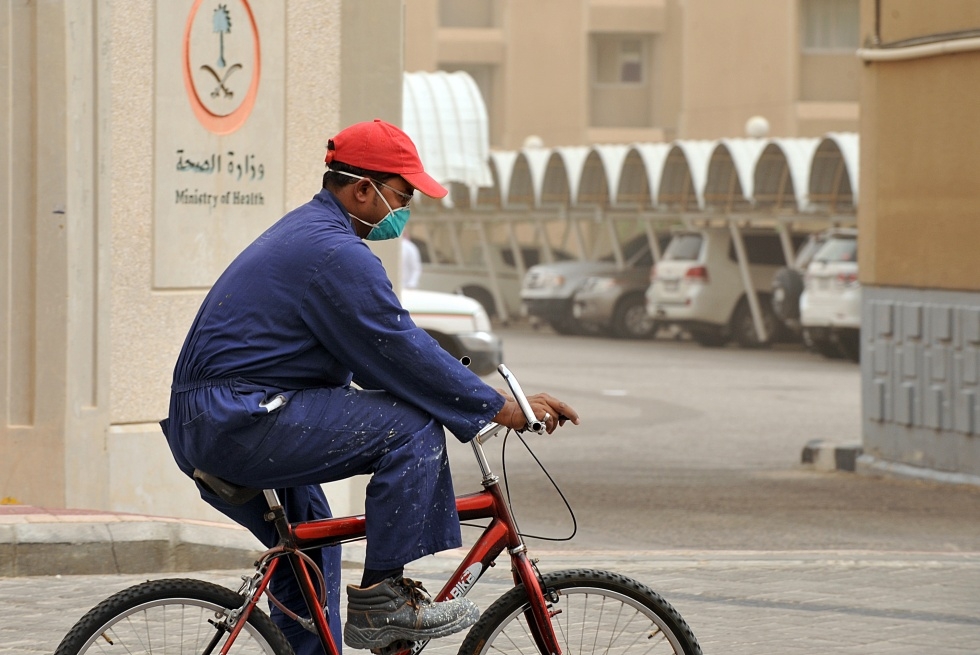Saudi health minister dismissed as MERS toll climbs

Saudi Arabia dismissed its health minister on Monday as concerns grow over the kingdom's handling of the MERS virus and its recent spread to Asia.
The now former health minister, Abdullah al-Rabiah, was named adviser to King Abdullah and replaced by Labour Minister Adel Fakieh in a royal decree, the official Saudi Press Agency reported.
The total death toll from the Middle East respiratory syndrome (MERS) coronavirus in Saudi Arabia has reached 12 this year after a resident of Jeddah succumbed to the illness, the Saudi Health Ministry said Monday. The latest fatality brings the total number of MERS deaths in Saudi to 69 since the first case of the virus was documented in the kingdom in September 2012.
Cases of MERS have also been reported in Qatar, the United Arab Emirates, Tunisia, Jordan, Oman and, most recently, in Malaysia.
The World Health Organisation said Thursday that it has been informed of a total of 243 laboratory-confirmed cases of infection worldwide, including 93 deaths.
New MEE newsletter: Jerusalem Dispatch
Sign up to get the latest insights and analysis on Israel-Palestine, alongside Turkey Unpacked and other MEE newsletters
The virus is considered a deadlier but less-transmissible cousin of the SARS virus that erupted in Asia in 2003 and infected 8,273 people, more than 800 of whom died. It destroys the lungs and kidneys of infected individuals. Long-term physical contact is thought to lead to infection.
No known vaccine is available. A recent study said the virus has been "extraordinarily common" in camels for at least 20 years, and may have been passed directly from the animals to humans.
Virus expert Ian Mackay, a virologist affiliated with the University of Queensland's Australian Infectious Diseases Research, told Arabian Business on Sunday that Saudi officials' control of the diesease seemed to has "broken down".
"We can only hope that the current hot zone, the Kingdom of Saudi Arabia, soon gets ahead of the outbreak through proactive action," Mackay said. "It seems that infection prevention and control has broken down in these health care outbreaks and this will need to be addressed throughout the region."
On 17 April, local media in Malaysia reported that a 54-year-old man who had developed a fever, cough and breathing difficulties after returning from a pilgramage to Mecca had died from MERS. Another 100 people from the man's village in the southern state of Johor were screened, with 64 of them subsequently quarantined after showing possible symptoms, according to The Star, a local newspaper.
"This is the first such case in Malaysia, and we take this matter seriously. That is why we are taking steps to screen the villagers to prevent the virus from spreading," Ayub Rahmat, a state lawmaker in charge of health, was quoted as saying in The Star.
Phillipine health authorities also urged all 418 passengers and crew who were on the man's flight from Abu Dhabi to Manila earlier this month to be tested for the virus, AFP reported.
This past week, health authorities in the United Arab Emirates announced 12 new cases of MERS infection discovered during routine checks on people who had contact with infected individuals. The health ministry insisted that the patients would be cured within two weeks, according to a statement published late Saturday by WAM state news agency.
Panic over the spread of the virus among medical staff in Jeddah triggered the temporary closure of a hospital emergency room in the city earlier this month.
The now fired minister visited the facility last week in a bid to reassure the public but on Wednesday at least four doctors at the King Fahd Hospital reportedly resigned after refusing to treat MERS patients.
Middle East Eye delivers independent and unrivalled coverage and analysis of the Middle East, North Africa and beyond. To learn more about republishing this content and the associated fees, please fill out this form. More about MEE can be found here.




